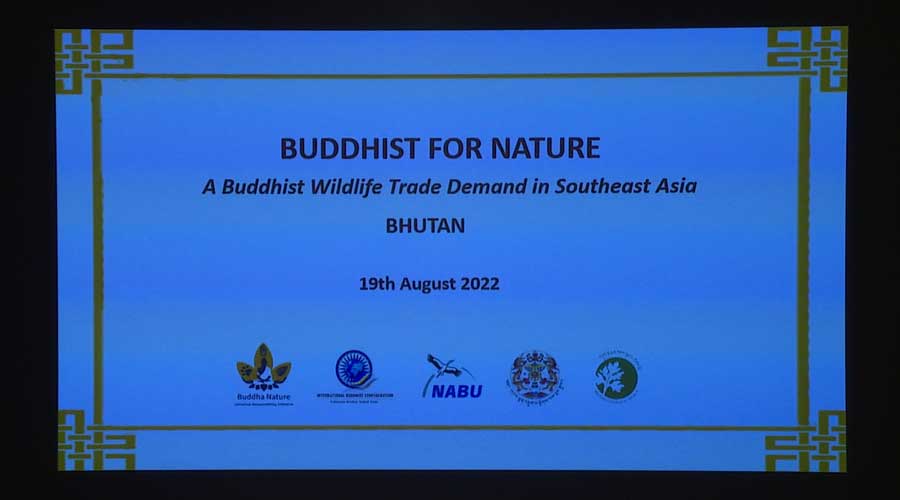
Bhutan is home to exotic and endangered wildlife. But the country continues to lose it to poachers despite stringent measures. According to data from the Department of Forests and Park Services, Himalayan black bears, sambar deer and wild boar are some of the most commonly hunted animals in the last five years. To address the issue from a different angle, an initiative was launched today. The initiative is a component of a broad awareness-raising effort in Southeast Asian nations, including Bhutan.
The blind belief among the Bhutanese that eating animal parts will cure illness or help them stay healthy is one of the reasons these endangered animals are killed. The other reason is the high demand for animal parts in the region.
To curtail this, the Initiative to Reduce Wildlife Trade Demand in Southeast Asia, also known as “Buddhist for Nature” was adopted in the country.
 The Central Monastic Body, academicians, students, and volunteers gathered at the Kuenselphodrang today to discuss and listen to the values and ethics of Buddhism by connecting the initiative to core Buddhist ideals. This includes the notions of compassion for all sentient beings, universal responsibility, and interdependence. The initiative aims to bring about behavioural changes relating to the use of wild animals for food, medicine, and other uses.
The Central Monastic Body, academicians, students, and volunteers gathered at the Kuenselphodrang today to discuss and listen to the values and ethics of Buddhism by connecting the initiative to core Buddhist ideals. This includes the notions of compassion for all sentient beings, universal responsibility, and interdependence. The initiative aims to bring about behavioural changes relating to the use of wild animals for food, medicine, and other uses.
“One example for creating awareness and reaching a lot of people is through this kind of event that we had today. We are also trying to bring the monastic body in and we will be focusing on areas where there is currently a lot of illegal trading happening in Bhutan,” said Pema Eden, Sr Information Analyst at the Bhutan Ecological Society.
The launch event also covered topics such as poaching and the illicit wildlife trade, the value of love and compassion for all sentient beings, and the significance of Buddhist conservation wisdom. According to the Bhutan Ecological Society, the project will feature a coordinated and extensive national outreach through a volunteer network in pertinent districts and communities across the nation in the next two years.
Tshering Dendup





